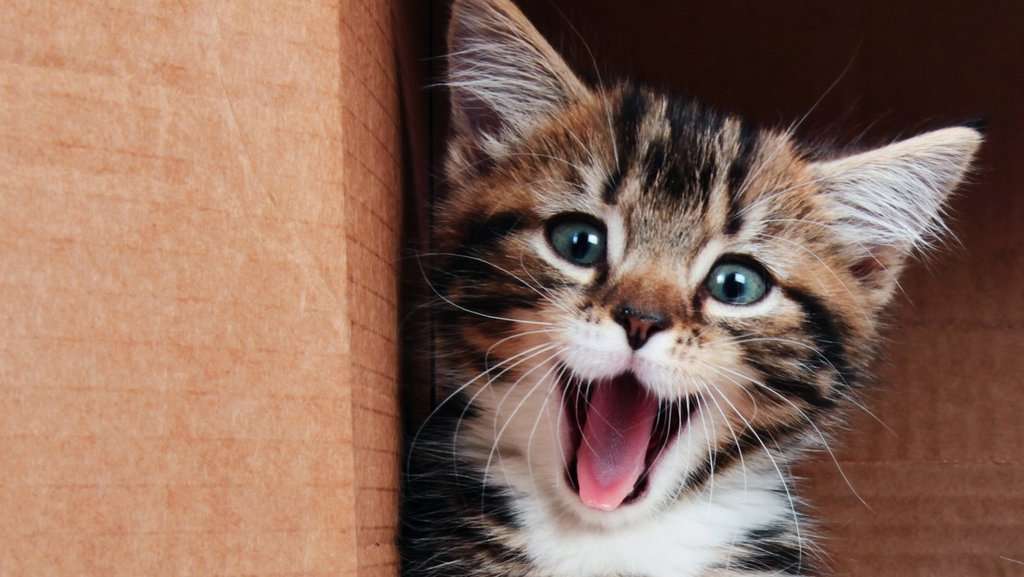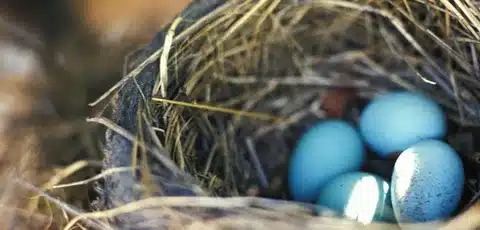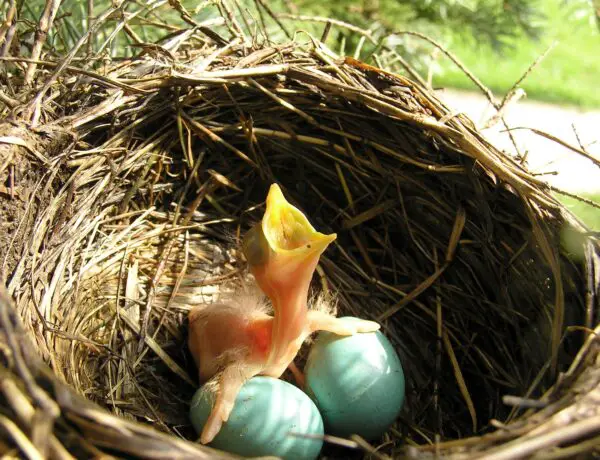Introduction
Have you ever been woken up in the middle of the night by the sound of your cat meowing? If so, you’re not alone. Many cat owners have experienced this phenomenon and wondered why their feline friends choose to vocalize at such inconvenient times. In this article, we will explore the reasons behind why cats meow at night.
Firstly, it’s important to understand that cats are naturally nocturnal animals. This means that they are most active during the night and tend to sleep during the day. While domesticated cats have adapted to our human schedules to some extent, their innate nocturnal instincts still play a role in their behavior. Meowing at night may be a way for cats to communicate their needs or desires, as they would in the wild.
Secondly, cats may meow at night as a form of attention-seeking behavior. Cats are known for their independent nature, but they also crave social interaction and companionship. When they meow at night, they may be trying to get your attention or express their desire for companionship. This behavior can be particularly common in cats that are left alone for long periods during the day.
Lastly, medical issues can also be a factor in why cats meow at night. Cats are masters at hiding their pain or discomfort, and meowing may be their way of expressing that something is wrong. If your cat’s nighttime meowing is accompanied by other signs of illness, such as changes in appetite or behavior, it’s important to consult with a veterinarian to rule out any underlying medical conditions.

Why does my cat meow at night for no reason?
There can be several reasons why your cat meows at night for no apparent reason. Cats are known to be nocturnal animals, which means they are naturally more active during the night. However, excessive meowing at night can be a sign of an underlying issue that needs to be addressed.
One possible reason for your cat’s nighttime meowing is that they are seeking attention. Cats are social animals and they often use meowing as a way to communicate with their owners. If your cat is meowing at night, it could be because they want to play, be fed, or simply want some company. It is important to spend quality time with your cat during the day to ensure they are getting enough attention and stimulation.
Another reason for nighttime meowing could be that your cat is experiencing discomfort or pain. Cats are masters at hiding their pain, so it can be difficult to determine if they are in distress. If your cat’s meowing is accompanied by other signs such as changes in appetite, litter box habits, or behavior, it is important to consult with a veterinarian to rule out any medical issues.
Stress and anxiety can also cause cats to meow excessively at night. Cats are creatures of habit and any changes in their environment or routine can cause them to become anxious. This can include moving to a new home, the addition of a new pet or family member, or even changes in their daily schedule. Providing a calm and secure environment for your cat, along with plenty of mental and physical stimulation, can help alleviate their anxiety and reduce nighttime meowing.
In some cases, excessive meowing at night could be a sign of cognitive dysfunction in older cats. Just like humans, cats can experience age-related cognitive decline, which can lead to confusion, disorientation, and increased vocalization. If you suspect your cat may be suffering from cognitive dysfunction, it is important to consult with a veterinarian for proper diagnosis and management.
Should I ignore my cat meowing at night?
As a cat owner, it can be quite frustrating when your furry friend starts meowing incessantly at night. It can disrupt your sleep and leave you wondering whether you should ignore your cat’s meowing or address the issue. While it may be tempting to simply ignore your cat and hope that the behavior goes away on its own, there are a few factors to consider before making that decision.
Firstly, it’s important to understand that cats are naturally more active during the night. They are crepuscular animals, which means they are most active during dawn and dusk. This behavior is instinctual and stems from their ancestors who were nocturnal hunters. So, when your cat meows at night, it may simply be expressing its natural instincts and desire to explore or hunt.
Secondly, meowing can also be a way for your cat to communicate with you. Cats are known to be vocal animals, and they use different types of meows to convey various messages. For example, your cat may be meowing at night because it is hungry, thirsty, or in need of attention. Ignoring your cat’s meowing in these situations may lead to increased anxiety or frustration for your pet.
However, it’s important to differentiate between normal meowing and excessive meowing. If your cat’s meowing at night is a recent behavior or has suddenly increased in frequency, it may be a sign of an underlying issue. Cats can meow excessively due to medical conditions, such as urinary tract infections or hyperthyroidism. In such cases, it is crucial to consult with a veterinarian to rule out any health problems.
What happens if cat cries at night?
When a cat cries at night, it can be a cause for concern for pet owners. Cats are known for their independent and sometimes mysterious nature, so understanding why they cry at night can help address any potential issues. There are several reasons why a cat may cry at night, ranging from physical discomfort to behavioral issues.
One possible reason for a cat crying at night is physical discomfort. Cats may cry if they are in pain or discomfort, such as from an injury or illness. It is important to observe the cat’s behavior and look for any signs of distress or physical symptoms. If the crying persists or is accompanied by other concerning symptoms, it is recommended to consult a veterinarian for a proper diagnosis and treatment.
Another reason for a cat crying at night could be loneliness or boredom. Cats are social animals and may become anxious or bored if they are left alone for long periods of time. They may cry as a way to seek attention or companionship. Providing stimulating toys, interactive playtime, and ensuring the cat has a comfortable and secure sleeping area can help alleviate these feelings of loneliness and boredom.
Stress or anxiety can also cause a cat to cry at night. Cats are sensitive creatures and can easily become stressed or anxious in certain situations. Changes in their environment, such as moving to a new home or the addition of a new pet, can trigger these feelings. Creating a calm and predictable environment for the cat, using pheromone diffusers or sprays, and providing hiding spots or safe spaces can help reduce their anxiety and minimize nighttime crying.
Lastly, a cat may cry at night due to a behavioral issue. Some cats may develop habits or routines that involve crying at night, such as demanding attention or wanting to be let outside. It is important to establish consistent boundaries and routines with the cat to discourage these behaviors. Ignoring the crying or providing alternative outlets for their energy, such as interactive toys or scratching posts, can help redirect their behavior.
Why does my cat meow every night at 3am?
Many cat owners have experienced the frustration of being woken up in the middle of the night by their furry friend’s incessant meowing. It can be quite puzzling to understand why cats choose to vocalize at such an inconvenient time, especially when they are typically known for their independent and quiet nature. However, there are several reasons why your cat may be meowing every night at 3am.
One possible explanation is that your cat is simply seeking attention. Cats are known to be creatures of habit, and if they have learned that meowing at a certain time results in their owner waking up and giving them attention, they may continue to do so. This behavior can be reinforced if the owner responds to the meowing by feeding the cat or engaging in playtime. In this case, your cat may be meowing at 3am because they have learned that it is an effective way to get your attention.
Another reason for your cat’s nighttime meowing could be related to their natural hunting instincts. Cats are crepuscular animals, which means they are most active during dawn and dusk. In the wild, these are the times when their prey is most active, so it is instinctual for cats to be more alert and active during these hours. However, domesticated cats may not have an outlet for their hunting instincts, leading to restlessness and meowing during the night.
Medical issues could also be a factor in your cat’s nighttime meowing. Cats are known to be masters at hiding their pain or discomfort, so it is possible that your cat is meowing at 3am because they are experiencing some sort of physical discomfort. It could be as simple as hunger or thirst, or it could be a more serious issue such as a urinary tract infection or arthritis. If your cat’s nighttime meowing is accompanied by other signs of illness, such as changes in appetite or behavior, it is important to consult with a veterinarian to rule out any underlying medical conditions.
Can cats see in the dark?
Yes, cats can see in the dark. In fact, they have a remarkable ability to see in low light conditions that far surpasses that of humans. This is due to several unique adaptations in their eyes that allow them to navigate and hunt effectively in the dark.
One of the main reasons cats can see in the dark is because of their highly developed night vision. They have a larger number of rod cells in their retinas compared to humans, which are responsible for detecting light and motion. This means that even in very dim lighting, cats can still perceive their surroundings and objects in their environment.
Another adaptation that helps cats see in the dark is their tapetum lucidum. This is a reflective layer behind their retinas that enhances their ability to see in low light conditions. The tapetum lucidum acts like a mirror, reflecting any light that enters the eye back through the retina, giving the photoreceptor cells a second chance to detect the light. This allows cats to make the most of any available light, even in near darkness.
In addition to their enhanced night vision, cats also have a wider field of view compared to humans. Their eyes are positioned more to the sides of their heads, giving them a greater peripheral vision. This allows them to detect movement and objects in their surroundings more easily, even in low light conditions.
It is important to note that while cats have excellent night vision, they still rely on some level of ambient light to see. In complete darkness, their vision is limited, and they may struggle to navigate their surroundings. However, even in very low light conditions, cats have a significant advantage over humans when it comes to seeing in the dark.
What is the reason behind cats meowing at night?
Cats meow at night for a variety of reasons, and it is important to understand the underlying causes in order to address the behavior effectively. One common reason for nighttime meowing is attention-seeking. Cats are naturally active during the night, and they may meow to get their owner’s attention or to initiate playtime. This behavior can be reinforced if the owner responds to the meowing by giving the cat attention or food.
Another reason for cats meowing at night is loneliness or boredom. Cats are social animals and may become restless or anxious when left alone for long periods of time. They may meow to express their frustration or to seek companionship. Providing interactive toys, scratching posts, and engaging with the cat during the day can help alleviate boredom and reduce nighttime meowing.
In some cases, medical issues may be the cause of excessive meowing at night. Cats may meow due to pain, discomfort, or illness. If a cat’s nighttime meowing is accompanied by other symptoms such as changes in appetite, litter box habits, or behavior, it is important to consult a veterinarian to rule out any underlying health issues.
Are there specific triggers that cause cats to meow during nighttime?
Yes, there can be specific triggers that cause cats to meow during nighttime. One common trigger is the natural instinct of cats to be more active during the night. Cats are crepuscular animals, which means they are most active during dawn and dusk. This is when they would typically hunt for prey in the wild. Therefore, cats may meow at night as a way to express their natural hunting instincts or to seek attention and play.
Another trigger for nighttime meowing in cats can be related to their environment. Cats are highly sensitive to changes in their surroundings, and any disruptions or unfamiliar noises during the night can cause them to meow. This can include sounds from outside, such as other animals or even people walking by. Additionally, if a cat is kept indoors, they may meow at night due to boredom or a lack of mental stimulation.
How does the behavior of cats differ during the night compared to the day?
During the night, cats tend to exhibit different behaviors compared to the day. One of the main differences is their increased activity level. Cats are naturally crepuscular animals, which means they are most active during dawn and dusk. This is because their ancestors were nocturnal hunters, and these instincts have been passed down through generations. Therefore, it is not uncommon for cats to become more playful and energetic during the night.
Another notable difference in cat behavior during the night is their heightened senses. Cats have excellent night vision, allowing them to see in low light conditions. This enhanced vision enables them to navigate their surroundings more effectively and hunt for prey. Additionally, their hearing becomes more acute at night, allowing them to detect even the slightest sounds. This heightened sensory perception can make cats more alert and reactive during nighttime hours.
Are there any health-related factors that contribute to cats meowing at night?
Yes, there are several health-related factors that can contribute to cats meowing at night. One common reason is that cats may be experiencing pain or discomfort. This could be due to a variety of issues such as arthritis, dental problems, or urinary tract infections. When cats are in pain, they may vocalize more frequently, especially at night when they are trying to rest.
Another health-related factor that can cause cats to meow at night is cognitive dysfunction syndrome (CDS), which is similar to Alzheimer’s disease in humans. Cats with CDS may become disoriented and confused, leading to increased vocalization, particularly during the night. It’s important to note that excessive meowing at night can also be a symptom of an underlying medical condition, so it’s always a good idea to consult with a veterinarian if you notice a sudden change in your cat’s behavior.
What can be done to reduce or prevent cats from meowing excessively at night?
Excessive meowing at night can be a frustrating issue for cat owners, but there are several steps that can be taken to reduce or prevent this behavior. Firstly, it is important to ensure that your cat’s basic needs are being met. This includes providing them with a comfortable sleeping area, access to fresh water, and a clean litter box. Cats are more likely to meow at night if they are hungry, thirsty, or uncomfortable, so addressing these needs can help alleviate the problem.
Another strategy is to establish a consistent bedtime routine for your cat. This can involve engaging in playtime and providing mental stimulation in the evening to tire them out before bed. Additionally, creating a calm and quiet environment in the bedroom can help promote a restful night’s sleep for both you and your cat. This may involve using white noise machines or closing windows to minimize outside disturbances.

Conclusion
Another reason why cats meow at night is because they are naturally more active during this time. Cats are crepuscular animals, which means they are most active during dawn and dusk. This is when they hunt for prey in the wild. Even though domesticated cats may not need to hunt for food, their natural instincts still drive them to be more active at night. Meowing can be their way of expressing their energy and seeking stimulation.
Additionally, cats may meow at night due to environmental factors. For example, if a cat is feeling stressed or anxious, they may meow more frequently. This could be caused by changes in their surroundings, such as a new pet in the house or a change in routine. Cats are creatures of habit, and any disruption to their routine can cause them to feel unsettled. Meowing at night may be their way of expressing their discomfort.





No Comments